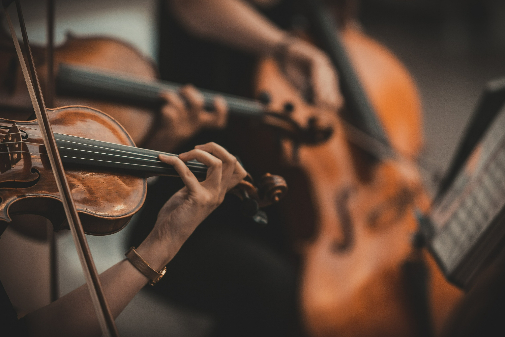AI-generated music inferior to human-composed works, according to study
Posted on 4 April 2023
 The researchers have produced guidelines for comparative evaluation of machine learning systems
The researchers have produced guidelines for comparative evaluation of machine learning systems
They also showed that there are faults with the algorithms used in AI music generation that could infringe on copyright, and developed guidelines to help others evaluate the systems they are using.
In the study, 50 participants with a high level of musical knowledge, were played excerpts of music - some from real human-composed works, and others generated by deep learning (DL), a type of artificial neural network, and non-DL algorithms.
The study recruited participants who had experience in analysing note content and stylistic success in music so that results were not just focused on expression in music.
Musical critera
The listeners were asked to rate the excerpts along six musical criteria: stylistic success, aesthetic pleasure, repetition or self-reference, melody, harmony, and rhythm, but were not told the identity of what they are listening to - human-composed or computer-generated.
Co-author, Dr Tom Collins, from the School of Arts and Creative Technologies at the University of York, said: “On analysis, the ratings for human-composed excerpts are significantly higher and stylistically more successful than those for any of the systems responsible for computer-generated excerpts.”
The study also provided findings that raise concerns about the potential ethical violations of direct copying with deep learning methods. A popular type of DL architecture called transformer (the same type of architecture as behind OpenAI's ChatGPT) was shown to copy large chunks of training data in its output.
Legal and ethical
Dr Collins explained: “If Artist X uses an AI-generated excerpt, the algorithm that generates the excerpt may happen to copy a chunk of a song in the training (input) data by Artist Y. Unwittingly, if Artist X releases their song, they are infringing the copyright of Artist Y.
“It is a concerning finding and perhaps suggests that organisations who develop the algorithms should be being policed in some way or should be policing themselves. They know there are issues with these algorithms, so the focus should be on rectifying this so that AI-generated content can continue to be produced, but in an ethical and legal way."
The researchers in the study have provided seven guidelines for conducting a comparative evaluation of machine learning systems. The findings could help to improve the development of AI-generated music, address current ethical issues, and avoid future legal dilemmas around copyright infringement.
Further information:
Example of human-composed music: Joseph Haydn's String quartet in F minor op.20 no.5 (Hob.III:35), 1st movement bars 35-48.
Example of music generated by Deep Learning algorithm: Music Transformer (Huang et al., 2018).
Example of music generated by non-Deep Learning algorithm: MAIA Markov algorithm (Collins & Laney, 2017).
Example of music generated by another Deep Learning algorithm: Listen to Transformer, constituting a near-exact copy of a well-known piece called "Carol of the bells."
Explore more news

Sodium channels in breast cancer cells a promising target for future treatments, study reveals
Thursday 25 July 2024

Cooling the classroom: University of York researchers to investigate UK schools’ responses to hot weather
Wednesday 24 July 2024

Hunter-gatherers kept an 'orderly home' in the earliest known British dwelling, study shows
Tuesday 23 July 2024

Study uses Game of Thrones to advance understanding of face blindness
Tuesday 23 July 2024

York academic contributes to new report on men’s health which reveals disparities between most and least deprived areas in the UK
Wednesday 17 July 2024
Media enquiries
About this research
The research article, called "Deep learning's shallow gains: A comparative evaluation of algorithms for automatic music generation", is published in the journal Machine Learning.
